May 18, 2025 | 21:16 GMT +7
May 18, 2025 | 21:16 GMT +7
Hotline: 0913.378.918
May 18, 2025 | 21:16 GMT +7
Hotline: 0913.378.918
During the COVID-19 pandemic, the Tam Hoa fishing port in Tam Giang Commune, Nui Thanh District, Quang Nam Province turned much quieter than before. Only a few fishing boats of local fishermen are at the fishing port. Meanwhile, before the pandemic, the fishing port received many fishing boats that came from other provinces.
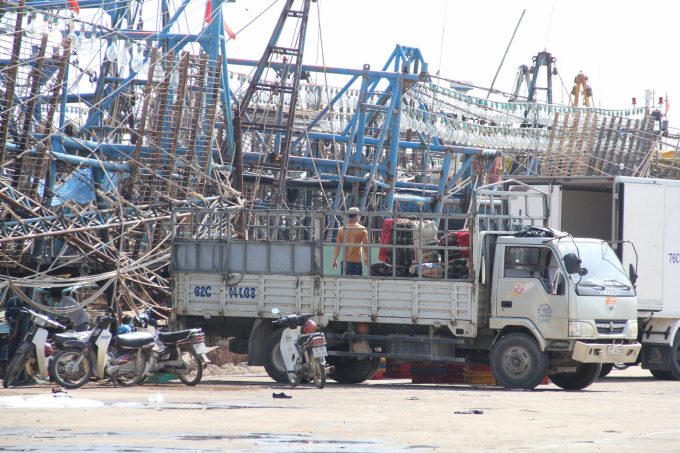
Fish is loaded into a truck at a fishing port in Quang Nam Province. Photo: L.K.
Fisherman Pham Van Du said that he had just returned after working at sea for 20 days and caught more than 35 tonnes of fish.
“I get losses as current fishing prices are just half of those in the previous time,” he said.
Before the pandemic, on average, he could sell a kilo of fish for VND 10,000 but now, only about VND 5,000, he said.
“I earned only VND 175 million while I spent about VND 200 million for the two fishing trips in the last 20 days,” he said.
Before the pandemic, Quang Nam fishermen like Du usually visited ports in Khanh Hoa Province when returning from sea.
At Khanh Hoa ports, they could buy other fish and then re-sell them to local wholesalers to get profits, Du said, adding that now, Quang Nam boats could not go to other ports but Tam Hoa fishing port.
“We have to accept any price that wholesalers offer to buy our fish or the fish will turn spoil,” Du said.
The fisherman said that he planned to catch squid that could be sold at better prices than fish.
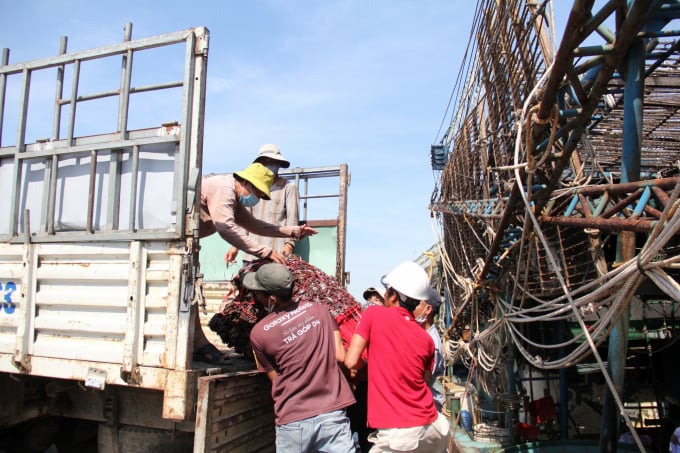
Wholesalers this year don't buy as much fish as Quang Nam fishermen expected. Photo: L.K.
Huynh Ngoc Tien, another fisherman from Tam Giang Commune said that he also returned from the sea after 20 days.
Tien who owns a fishing boat with a capacity of 700 CV said that a crew of 12 were working for him.
He spent about VND 300 million on the trip, catching two tonnes of fish and nearly three tonnes of squid.
He sold all the catch for VND 400 million. Each of his workers got VND 4 million, just half of the payment they usually got previously.
Tien said that he still got a profit thanks to the stable price of dried squid, about VND 120,000 per kg. Meanwhile, prices of fish decreased sharply.
However, Tien said that this year, squid production was low.
In previous years, a fishing boat could catch up to 50 tonnes of squid. This year, the biggest catch was only 20 tonnes.
“This is a tough time because of COVID-19. We don’t know what to do if we don’t go to the sea for fishing,” Tien said.
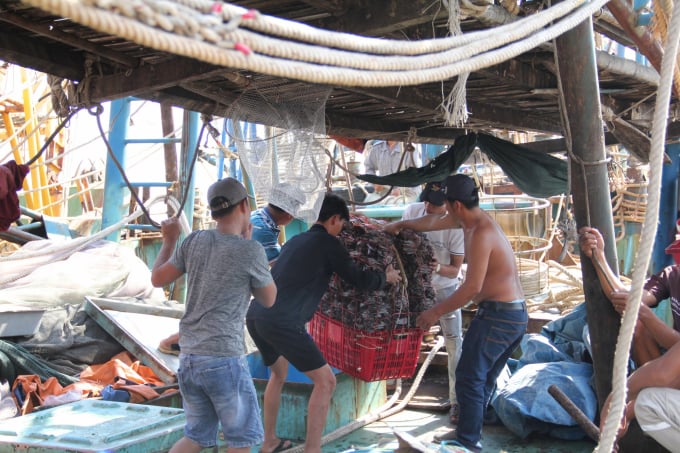
Quang Nam's fishing production is just half of that of last year. Photo: L.K.
According to Quang Nam Centre for Fishing Boats Registration and Management, local fishing ports like An Hoa or Tam Quang still received a stable number of fishing boats during the COVID-19 pandemic.
Establishments bought all the fish that fishing boats offered, so there was no phenomenon in which fish was unsold.
Last year, nearly 2,750 tonnes of fish were traded at the fishing ports. However, this year, the traded volume was just 1,150 tonnes due to the pandemic and reduced marine resources.
Wholesale prices are now lower than previous but retail prices are still high due to difficulties relating to transportation among provinces, especially to pandemic-hit areas like Da Nang and Quang Nam.
Translated by Hien Anh

(VAN) Deputy Minister Nguyen Quoc Tri also expressed his hope that Cuba will soon overcome its current challenges, attain food security, and further expand cooperation with Vietnam.

(VAN) The project contributes to enhancing the resilience of communities vulnerable to the impacts of climate change, with a primary focus on local women.
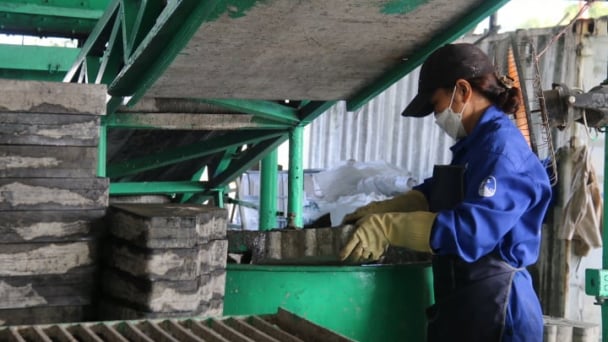
(VAN) Green materials help save energy and resources. However, after more than 10 years, Vietnam has only developed over 200 green buildings with more than 6 million square meters of floor space.

(VAN) Vietnam - Thailand Business Forum 2025: One plus one on three connects, marking a milestone in the comprehensive strategic partnership between the two nations.
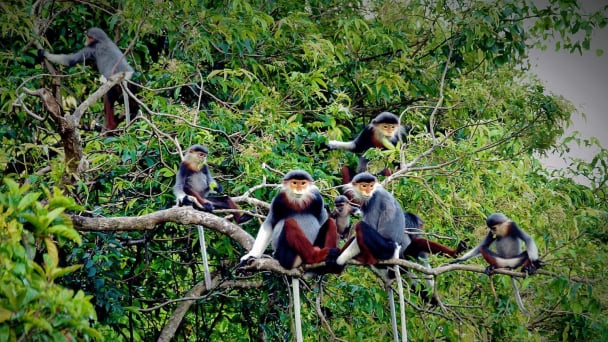
(VAN) The United Nations designated 22 May as the International Day for Biodiversity 2025 with the theme 'Harmony with nature and sustainable development.'
![Multi-channel, multi-directional Vietnamese agricultural markets: [8] A national strategy is needed](https://t.ex-cdn.com/nongnghiepmoitruong.vn/608w/files/phucpm/2025/05/15/1435-thi-truong-nong-san-viet-da-kenh-da-huongbai-8-can-mot-chien-luoc-quoc-gia-084750_728.jpg)
(VAN) The Chairman of Hung Nhon Group shared: ‘Opening up and tapping into new markets is the right and strategic direction for Vietnam's agricultural sector.’
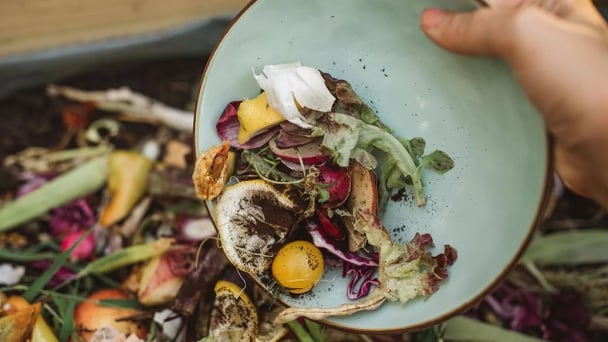
(VAN) Food waste has become a serious issue in modern society, especially in rapidly urbanizing and developing cities like Hanoi.